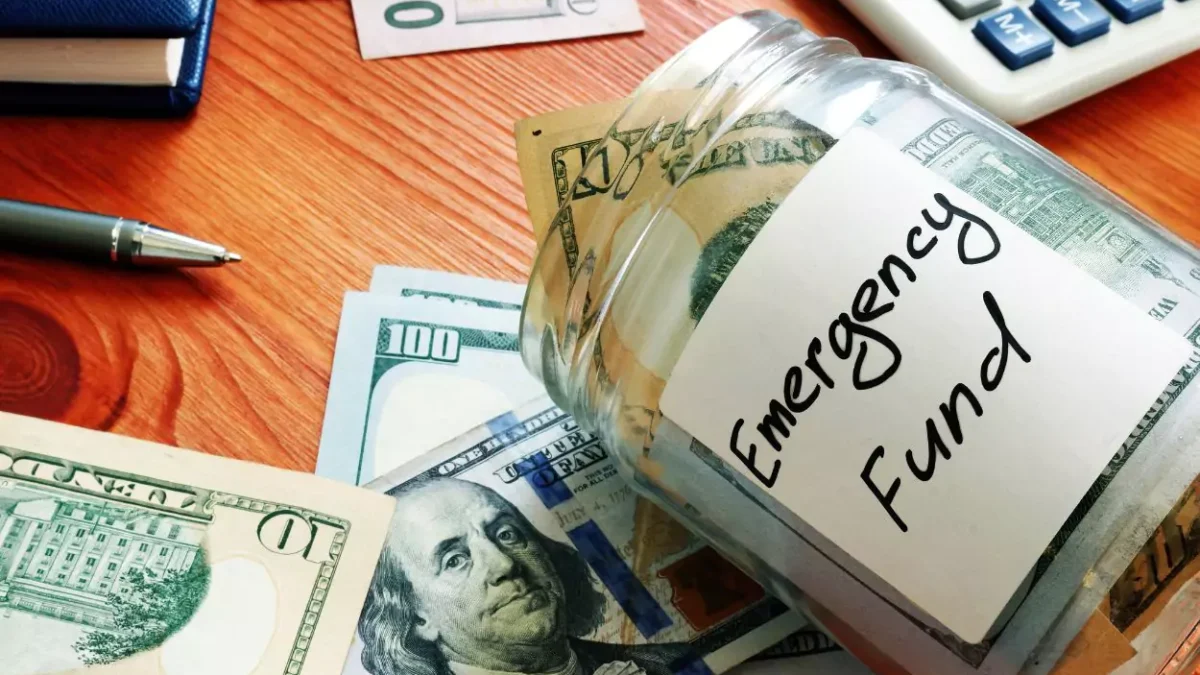Life can be unpredictable, and financial surprises are no exception. An emergency fund acts as a safety net for these unexpected moments.
Knowing exactly how much to save in your emergency fund can be confusing. It’s crucial to have enough to cover sudden expenses, yet not so much that your money isn’t working for you elsewhere. Your emergency fund is your financial guard, ready to tackle emergencies without derailing your budget or forcing you into debt.
It’s the buffer that keeps a flat tire from deflating your finances or a medical bill from causing monetary mayhem. But the question remains: how big does this buffer need to be? In this blog, we’ll explore the fundamentals of emergency funds—how to figure out the right amount for you, why it’s essential, and tips to effectively build your safety stash. Let’s dive into the basics of emergency funds and understand the savings needed to ensure peace of mind.
The Importance Of An Emergency Fund
An emergency fund is money saved for surprise costs. It helps keep you safe if money gets tight. Job loss or car repairs can happen. This fund keeps stress away during tough times.
Saving money is smart. It protects your future. Start small if needed. Aim to save for three to six months of expenses. This money is for needs, not wants.
| Expense Type | Amount to Save |
|---|---|
| Minor car fix | $500 |
| Healthcare cost | $1,000 |
| Job loss | 3-6 months’ worth |
Life can surprise you. Be ready with an emergency fund. It’s a safety net for unexpected costs. Peace of mind comes with a full savings account.
Calculating Your Emergency Fund Needs
An emergency fund is money for sudden needs. Think about your monthly costs. Include rent, food, and bills. List them all. This is your starting point.
Jobs can be uncertain. Some are more stable than others. A steady job means you might save less. A less steady job? Maybe save more. Aim for three to six months of expenses. This is just a guide.
| Expense Type | Average Cost |
|---|---|
| Housing | $800 |
| Food | $250 |
| Utilities | $150 |
| Transportation | $100 |
| Insurance | $200 |
| Miscellaneous | $100 |
| Total Monthly | $1600 |
Save regularly. Start small if needed. Every bit helps. It’s about being ready for surprises.
Factors Influencing Your Emergency Savings
Different things can change how much money you need saved up. Family size plays a big part. More people means more money needed. Think about how many you provide for. This includes kids, a partner, or maybe older family members.
Debt obligations are also key. These are things like loans or credit card bills. If you owe money, you need more in your savings. This helps cover payments if you lose your job. Make sure to think about all your debts.
Strategies For Building Your Emergency Fund
Saving money can be tough. Two key ways can make it easier. Let’s explore.
Automated Savings mean setting up your bank account to move money to savings automatically. Choose an amount you won’t miss from each paycheck. Even a small bit adds up over time. Think of it like a magic trick for your savings. You set it, forget it, and watch your money grow.
Budget Adjustments are about looking at your spending. Find things you can spend less on. Maybe eat out less or skip that extra coffee. Put the money you save into your emergency fund instead. It’s like finding money in your couch, but better. You’re making smart choices to protect your future.
Maintaining And Using Your Emergency Fund Wisely
An emergency fund is key for financial safety. It’s money set aside for unexpected costs. Think medical bills or sudden job loss. These funds should be easy to get to, like in a savings account. Regular reviews of your fund are vital. They help to make sure you have enough money saved.
Life changes, like a new job, may mean you need to save more. Sometimes you might need less. Check your fund often to stay on track. Aim to avoid taking money out for non-emergencies. It can be tempting to use this money for wants, not needs. Try to resist this.
Remember, an emergency fund is for just that, emergencies. Using it wisely means it’s there when you truly need it. Keep it funded and intact.
Conclusion
Saving for emergencies is smart. Think about how much you spend monthly. Now, aim to save enough for three to six months. This fund is your safety net. Start small, save regularly. Every little bit helps. The peace of mind you’ll gain?
Priceless. Ready to start saving? Your future self will thank you. Remember, your emergency fund is a key step to financial security.
Unlock Full Article
Watch a quick video to get instant access.


Social Media